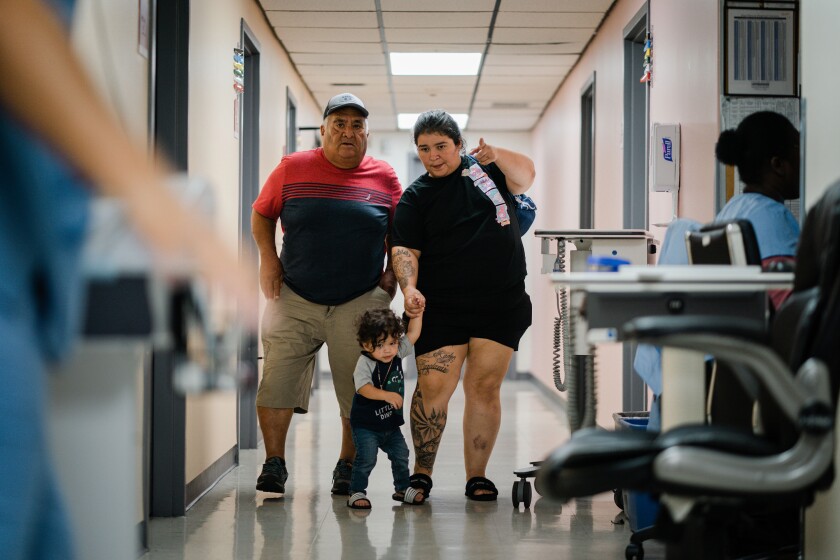But it isn’t likely to happen as the state agency best equipped to run the program said it wouldn’t be pursuing the funding for it.
“We anticipate that our state’s full approach to serving children will continue to be successful this year without any additional federal programs that inherently always come with some federal strings attached,” Mallory McManus, spokeswoman for the Department of Children and Families, wrote in an email 30 minutes after this story went online.
The Summer EBT Program was approved by Congress last December. It would provide healthy meals while school is out to children who receive free or reduced-cost lunches during the school year. So far, 25 states, territories and tribes have signed on.
It’s administered by the U.S. Department of Agriculture under the Supplemental Nutrition Assistance Program, formerly called food stamps.
After discussions between state officials and childhood hunger advocates, Florida has not designated a lead agency to administer the program. The deadline to apply is January 1.
“We had a number of conversations with House and Senate leaders. They expressed a good deal of interest and support – but the state hasn’t committed to the program yet,” said Sky Beard, Florida director of No Kid Hungry, an advocate for programs to help end child hunger. “With the holidays coming we want to make sure Florida doesn’t miss out on this opportunity.”
The state would have to provide a 50 percent match for administrative costs to participate, which comes out to about $12 million a year, Beard said. The state budget has no money approved for such an expense.
Spokespeople for the governor, Senate president and House speaker did not reply to requests for comment.
DCF was first asked for comment on Monday. McManus’ email sent Thursday said the state already runs programs to make sure “children have access to nutritious meals.”
Those include free and reduced lunch programs at school, SNAP benefits to families who qualify, and Summer Break Spot programs administered by the Department of Agriculture and Consumer Services.
Florida has a record of culling the ranks of those receiving food assistance. It opted out of a COVID-19 food benefits program two years before it expired in March, costing the state $5 billion. Also in 2021, Gov. Ron DeSantis decided not to enlist in a pandemic food aid program for about 2 million children from low-income families that would have brought Florida $820 million.
And with one in seven homes short on food to feed their families, Beard said, agencies like hers “are looking for as many tools in the toolbox as we can find. This would be a huge missed opportunity.”
In a letter to Washington in July, Vianka Colin of the agriculture department said her agency wasn’t “the best equipped” to run the program, and that DCF would be better suited to the task.
“At this time, the FDACS does not have the necessary infrastructure and legislative directive to administer the Summer EBT Program,” Colin said.
DCF does have the infrastructure as the state agency in charge of running SNAP and providing customer support services, she said. The agriculture department helped DCF issue Pandemic EBT cards in the past, and would be willing to do the same with Summer EBT cards, Colin said.
“We look forward to our continued partnership to ensure that children in our state have continuous access to nutritious food throughout the summer,” she wrote.
©2023 Orlando Sentinel. Distributed by Tribune Content Agency, LLC.










